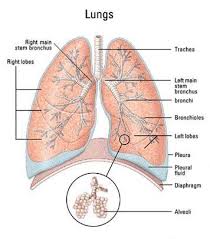
Pain management for people with lung cancer has come a long way, but concerns about pain remain frightening to nearly everyone diagnosed with the disease. “Will I have pain? What if my pain medications stop working and can’t control my pain?” Pain can negatively affect your quality of life making you feel down and irritable, but there are many options available for treating pain. In 1986, the World Health Organization published guidelines for managing cancer pain. Using this approach, as well as newer techniques, the vast majority of people can experience good pain control throughout their lung cancer treatment.
How Common Is Pain With Lung Cancer?
Pain is very common with lung cancer, and 51% of people living with lung cancer experience some form of pain during their treatment. With advanced lung cancer, nearly everyone will require some type of treatment to relieve pain.What Causes Pain With Lung Cancer?
Lung cancer can result in pain in several ways. Some of these include:- Pain from the tumor pressing on nerves, bones, or the pleura (lung lining)
- Pain from lung cancer symptoms, such as coughing
- Side effects of treatment for lung cancer, such as mouth sores during chemotherapy, or incision pain following surgery
- Other diseases that are present along with lung cancer, such as arthritis or headaches
Importance of Treating Cancer Pain
Cancer pain can interfere with your quality of life by disrupting your sleeping, eating and exercise habits, and can even lead to depression. Proper treatment of pain can improve your ability to cope as you go through cancer treatment, and help you take part in normal activities that you enjoy. Adequate pain control is important physically as well, and is associated with a better response to treatment, such as improved healing after surgery.How Can I Describe My Pain to My Doctor?
Your doctor will ask you to describe the nature of your pain. Is it sharp or dull, constant or does it come and go? What makes it better and what makes it worse? He will also ask you how severe your pain is. Doctors use several types of “pain scales” to help you describe the intensity of pain you are experiencing. The most common method is to ask you to describe your pain on a scale from 1 to 10, with 1 being barely noticeable pain, and 10 being the worst pain you can imagine.Barriers to Adequate Pain Control
Studies suggest that pain is undertreated with lung cancer. Several factors can contribute to this:- Fear of addiction – People who take medications for cancer pain rarely become addicted.
- Fear that pain medications will no longer work, and there will be nothing left to control pain if it gets worse – You will not become immune to pain medicines, and further options are available.
- Fear of side effects from pain medications – Pain medications can have side effects, but many of these are fairly easy to control.
- Inability to afford pain medications – If you cannot afford your pain medication, your oncologist may be able to change your prescription to one that is less expensive, or direct you to a program where you can receive financial help.
Treatments Used For Pain Control
Lung cancer can cause significant pain, and the majority of people will need medications to control pain at some point during their treatment. If pain becomes very severe, procedures such as nerve blocks can provide further relief. Some non-medication therapies may also help to control your pain.Medications for Cancer Pain
Medications for control of cancer pain fall into 3 main categories:
- Over-the counter medications – Over the counter medicines such as ibuprofen (Advil) or acetaminophen (Tylenol) can help with very mild pain.
- Opioids – Opioids such as codeine and morphine are usually needed for moderate pain.
- Other medications – Medications such as anti-depressants and anti-seizure drugs are sometimes used for burning/tingling pain, and steroids can be helpful with pain caused by swelling.
Interventional Pain Treatments
If a tumor is pressing on nerves or bones causing pain, radiation therapy, chemotherapy, or surgery may be used to decrease the size of the tumor and relieve pain. Nerve blocks, a procedure in which a medication is injected around a nerve or into the spine, can be helpful with severe pain. Neurosurgery may also be used for severe pain, to cut nerves that send pain signals to your brain.
Alternative/Complementary Approaches to Pain Control
Many cancer centers now offer complementary/alternative approaches to help with pain control. These are not a substitute for other pain treatments, but some have been shown to reduce the need for pain medications. Some of the methods that appear promising include massage therapy, hypnosis, acupuncture, and therapeutic touch.



0 nhận xét:
Speak up your mind
Tell us what you're thinking... !